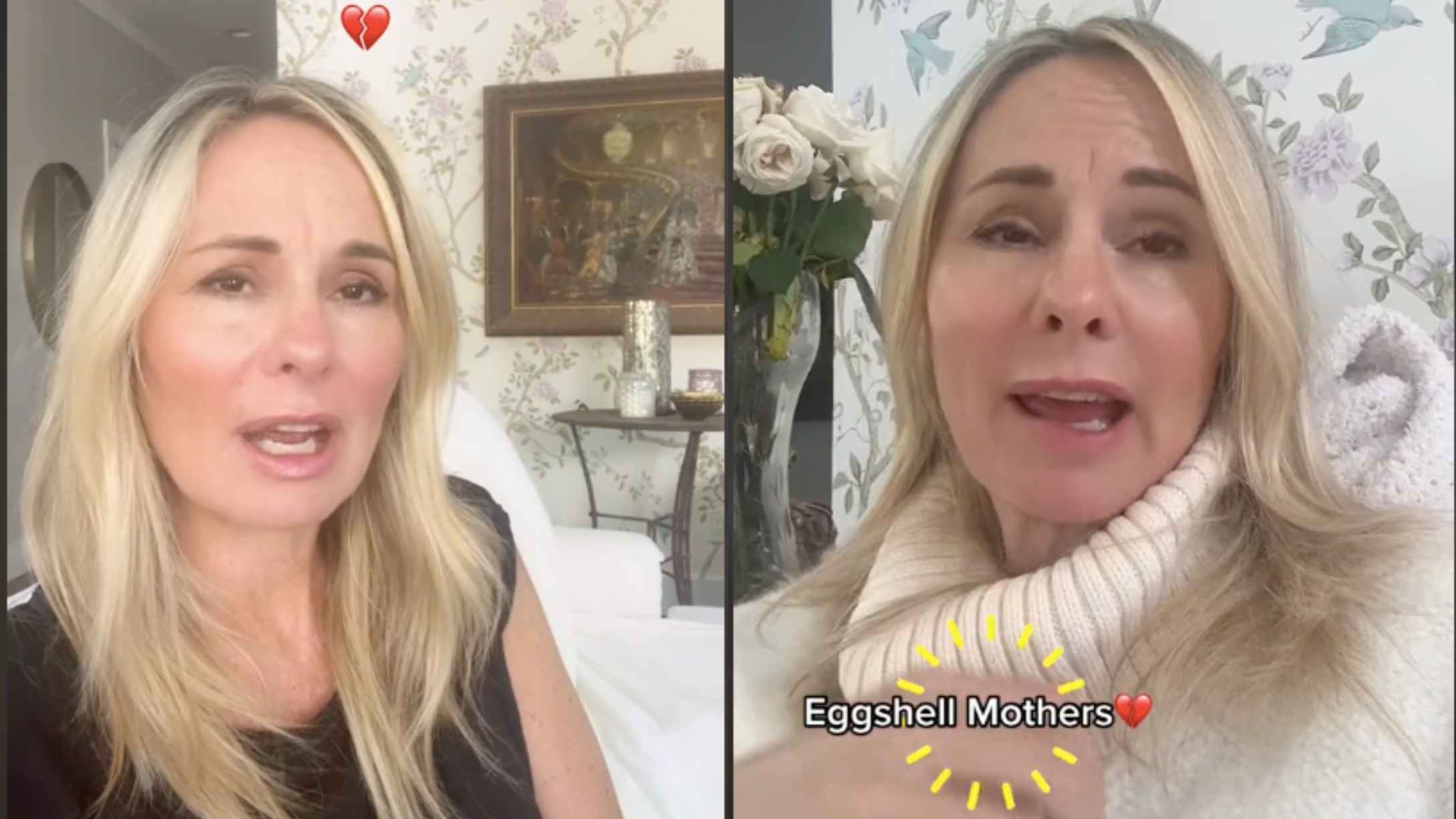
It can be scary to think about the power dynamic between ourselves and our children. They rely on us not only for food and shelter, but many of their emotional needs as well. If we’re not careful, we can allow our emotions to negatively affect our children and the safety they feel in our homes. One clinical psychologist called this problematic parenting style “eggshell parenting.”
It describes the way a parent’s mood can leave their children feeling like they have to, as the name suggests, walk on eggshells.
More from CafeMom: Mom Slammed for Gentle Parenting Methods People Think Are 'Abusive'
Dr. Kim Sage says eggshell parenting is a form of emotional endangerment.
Sage has gone viral on TikTok for discussing eggshell parenting. She says the children’s reactions are a result of parents whose moods are both unstable and unpredictable. But more than just disregulated emotions for both parents and children, Sage says it’s a form of “emotional endangerment.”
“It puts your child in a position where they have to always be hyper-vigilant to what may or may not happen next,” she says.
More from CafeMom: Parenting Educator Condemns Jellyfish Parenting Trend, Saying It Makes Parents 'Spineless'
Sage says if you are loving one minute but unsafe the next, you're generally unsafe.
Sage says if you are loving, safe, and wonderful but then unsafe, for a child, at the core, you are unsafe. She also provided examples. “The parent’s moods like being on a roller coaster. There’s always going to be high highs and low lows,” she explains.
It can also include a parent name-calling the child or verbal berating, or making you feel bad about yourself. The punishments these parents dish out often include shaming the child instead of simply correcting the behavior of a developing child.
Sage says if you had eggshell parents, you need to be careful not to repeat their mistakes.
Furthermore, Sage says children of eggshell parents are often made to feel responsible for their parents' emotions. There’s no room for emotional separation. The child is tasked with regulating their parents emotions and even act in the role of parent sometimes. Sage says that if you wonder if you are an eggshell parent, your awareness makes it unlikely that you are one.
But if you were raised by an eggshell parent, there are additional steps you may have to take to ensure you don’t repeat that pattern with your own children, like learning to regulate your own emotions and apologizing to your children when you have an emotional outburst.
Sage also explains how this parenting style affects children as they grow into adults.
Sage says children of eggshell pants may identify as empaths later in life. But in actuality, their childhood trauma taught them to be overly sensitive to a parent, which can result in anxiety, having your feelings easily hurt, and a desire to want to isolate.
Many people in her comments section recognized the dynamic well.
“My mom relayed on my like an emotional crutch,” one user wrote. “I was 5-9. Then she started hating me as I got older cos I saw through her. I’m hyper vigilant 24/7.”
Another shared: “My whole personality was based around being an empath until I woke up to it being a trauma response. Now I feel I don’t know who I actually am.”




